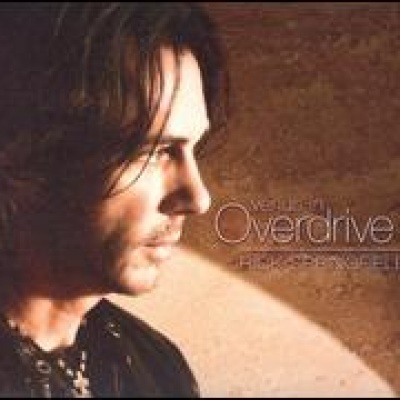
Venus in Overdrive
by Stephen Thomas ErlewineDon't get fooled by the title of "What's Victoria's Secret?," the first song and single on Rick Springfield's Venus in Overdrive, his 14th or so studio album (depending if soundtracks to Mission Magic and Hard to Hold are counted). Despite its goofily punning title and tight, pulsating guitars that consciously recall "Jesse's Girl," the song does not herald a return to the power pop heyday of the '80s; once its giddy thrill wears away, it's clear that Venus in Overdrive is every bit the sequel to 2004's heavy-lifting Shock/Denial/Anger/Acceptance, its song cycle of the grief cycle not at all an anomaly among Springfield's post-fame albums. Ever since his father's death in the mid-'80s, Springfield has avoided the frivolous whenever he could, which has as much to do with his slow slide off the charts as it does any changing fashion. Once off the charts, Springfield had the freedom to dig deep, something he earned through a decade-long layoff in recording -- and since that 1999 comeback, Karma, he's tackled big issues like spirituality, life and death, and, now with Venus in Overdrive, love in its many guises, from the flesh to the soul. Heady stuff, but love is always a good subject for a pop song, and thankfully this doesn't shy away from pop hooks, dredging up his past on "What's Victoria's Secret?" and drifting toward a hazy psychedelia in "She," which recalls Lenny Kravitz as much as it does John Lennon (who surfaces again on the gorgeous "Nothing Is Ever Lost" and whose assassination is explicitly referred to in "3 Warning Shots"). Springfield has a knack for offhand allusions like this -- and not just references to older tunes, either; "Mr. PC" is as successful a Foo Fighters homage as possible -- and this helps give Venus a lightness to balance its topical heaviness, a trait not so evident on Karma or Shock and wholly welcome here as it keeps the record from feeling like a drag. Not that Springfield escapes his ponderous instincts -- his earnest quest for answers can result in a slab of arena rock on "One Passenger" and lead him to inadvertently borrowing a title from Rush on "Time Stand Still" -- but this is balanced by that gift for giant pop hooks plus a sweet generosity, crystallized in "Saint Sahara" and "Oblivious," two tributes to a young fan who has passed on. By letting all of his sides surface here, Springfield winds up with a satisfying album, as it gets to his sober nature without abandoning his fizzy gifts.
